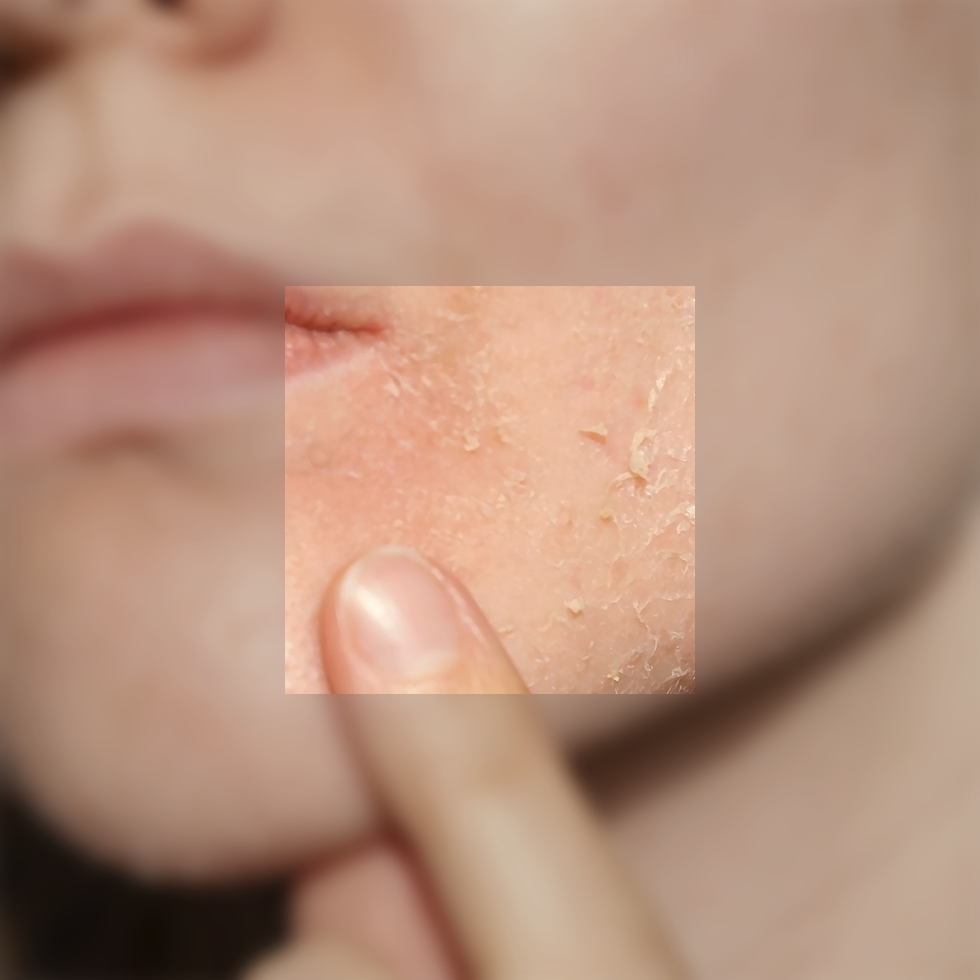Dry and dehydrated skin
Overview
Dry and dehydrated skin are distinct conditions that can sometimes coexist and share similar symptoms. Dry skin is a skin type characterised by a lack of oil (sebum) production, resulting in a compromised lipid barrier and reduced ability to retain hydration. Symptoms include roughness, tightness, flakiness, itching, and occasional redness or irritation. Causes of dry skin encompass genetics, environmental factors like cold weather, low humidity, hot baths, harsh cleansers, ageing, and specific medical conditions.
On the other hand, dehydrated skin is a condition marked by insufficient water content. It occurs when moisture levels are depleted, leading to dullness, tightness, and an overall lack of plumpness. Symptoms include tightness, dullness, fine lines or wrinkles, sensitivity, and reduced elasticity. Dehydration can stem from factors such as low humidity, wind, sun exposure, excessive caffeine or alcohol intake, certain medications, inadequate water consumption, and the use of harsh skincare products that strip natural moisture.
Quick Tips
Dry and dehydrated skin are different conditions and often need to be treated differently. However, both conditions can benefit from proper hydration and moisturisation to improve skin health and appearance. Combating these conditions involves internal and external measures. Drinking plenty of water, using a humidifier in dry indoor environments, and avoiding excessive caffeine and alcohol consumption can also help improve skin hydration. Apply moisturisers containing ingredients like hyaluronic acid, glycerin, and ceramides to lock in hydration.
For a more comprehensive approach tailored to your unique concerns, we would recommend booking a skin consultation with us. We’ll access your individual needs and create a personalised plan including targeted in-clinic treatments to address dry or dehydrated skin effectively. Consistency with these treatments can play a vital role in maintaining optimal skin hydration and health.
Recommended treatments
